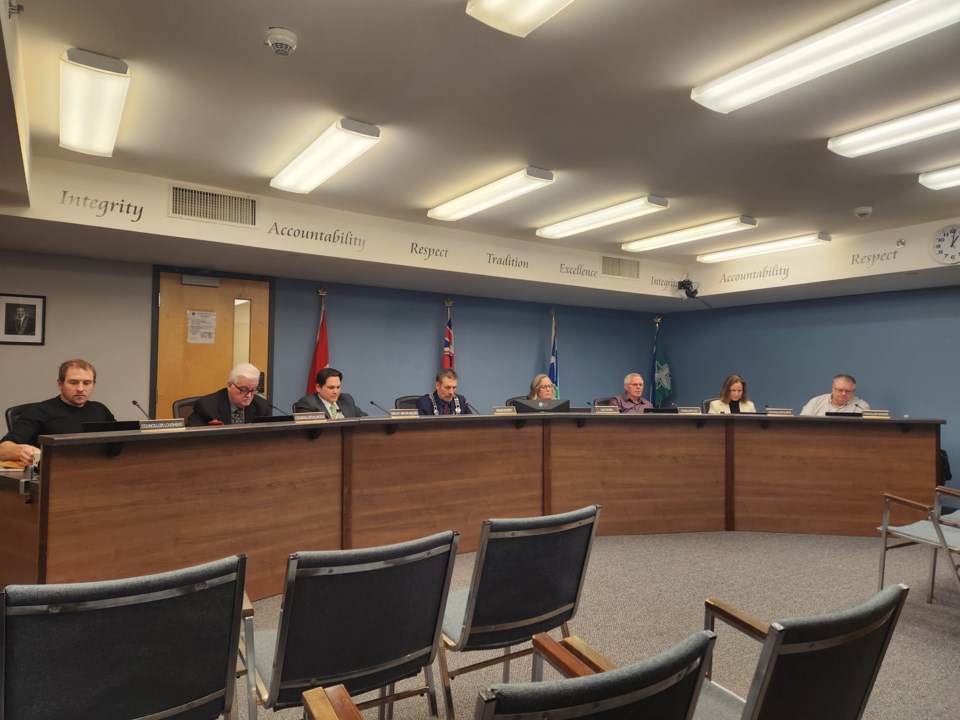Grey Highlands council is ready to adopt a new development charges bylaw for the next 10 years.
On Feb. 6, council held a special meeting to discuss the draft development charges bylaw. The meeting lasted several hours and included multiple recorded votes on proposed changes to the background study that forms the basis and justification for the development charges the municipality can levy.
The meeting saw council divided over the proposed development charges and the supporting background study. Mayor Paul McQueen and Coun. Paul Allen repeatedly suggested that the background study included future capital projects that the municipality was unlikely ever to pursue or complete and they didn’t like the idea of collecting development charges for those projects.
Both McQueen and Allen brought forward multiple resolutions to amend the proposed bylaw to eliminate the collection of development charges for projects they didn’t feel should be included in the study. Some of their suggestions were passed by council, while others were defeated in 4-3 recorded votes with deputy mayor Dane Nielsen and councillors Nadia Dubyk, Joel Loughhead and Tom Allwood voting against the proposed changes.
The net result after the flurry of resolutions was the parks and recreation development charge was reduced by an estimated nine per cent and the water services development charge was reduced 15 per cent.
Municipal staff will amend the proposed development charges bylaw and the final numbers will be before council for approval on Feb. 15.
The bylaw proposed a total development charge for a fully serviced lot at $21,540. Components of the fee are: parks and recreation: $4,641, library services: $1,483, fire protection: $1,437, waste diversion: $260, services related to a highway: $2,439, stormwater and drainage control: $563, water: $8,543 and wastewater: $2,174.
Unserviced lots would not pay the charges for water and wastewater. The proposed non-residential charge was calculated at $70.94 per square foot, which was down $21.52 from the previous charge.
Consultant Stefan Krezeczunowicz explained to council that under Bill 23 the development charges they set will be discounted for the first five years. In year one the discount will be 20 per cent and it will shrink by five per cent until the total amount can be collected in year six. Development charges bylaws can now have a 10-year lifespan, although municipalities do have the option of updating them at any time.
During the debate, both McQueen and Allen questioned the parks and recreation development charges jumping from $1,170 to $4,641 in the new study. Allen also had questions about including water-related projects that were based on a 2017 plan that is unlikely to be used by the municipality in the future.
“My intention isn’t to lower them to get a lower development charge,” said Allen, who expressed concerns about the background study using a “wish list” of projects to calculate the charge. “If we have projects that we know we’re going forward with, then I’m all for them.”
McQueen said the background study included development charges for projects council had already approved and funded. He pointed to a floating dock at the Flesherton pond, a plan to upgrade the park in Maxwell and outdoor ice rinks in various communities.
“Development charges need to be defendable. You’re setting yourself up for an appeal,” said McQueen. “(Those projects) have been dealt with. They don’t need to be in this part of the background study.”
Council did vote to remove the charges for the recreation projects McQueen pointed to and also agreed with Allen on the removal of some water related fees for the possible extension of Markdale’s water system to Kimberley and the creation of a water system in Flesherton.
However, other attempted reductions were defeated in 4-3 votes.
Other members of council did not see a need for further reductions.
“We have concerns about how we’re going to pay for infrastructure in the future,” said Nielsen, who said the background study was solid. “It’s logical. It’s fair. It’s responsible.”
Allwood said the philosophy of development charges was “growth pays for growth” and he wanted to ensure Grey Highlands had the financial resources to deal with future growth-related capital needs.
“I’m concerned if we start taking this out of development charges, we will not see our services grow,” said Allwood. “We need to have these development charge reserves in place.”
At the end of the day, council voted 7-0 in favour of directing staff to bring forward a final version of a development charges bylaw for consideration on Feb. 15.
